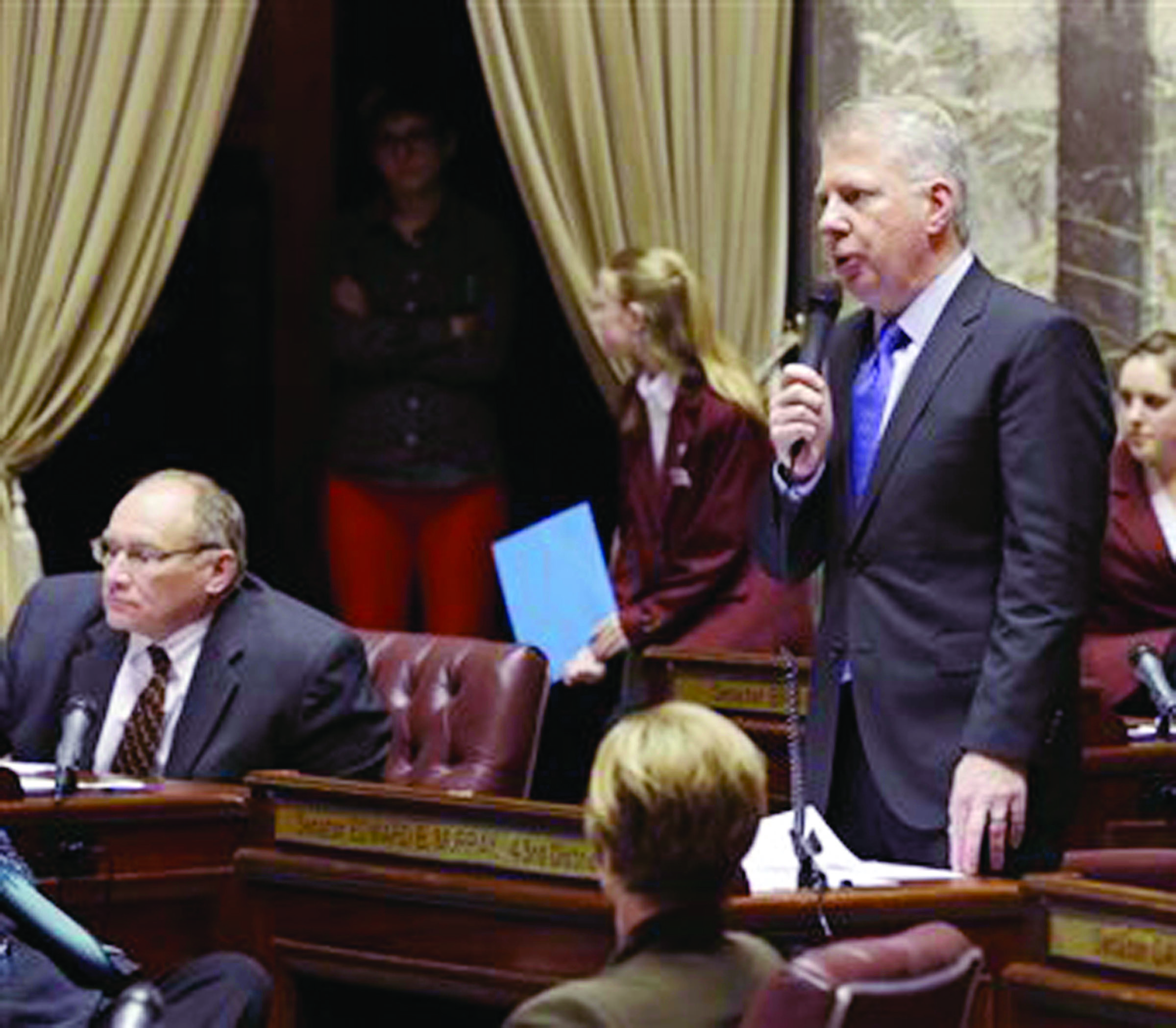By Rachel La Corte
The Associated Press
OLYMPIA — A Republican-dominated coalition took power in the Senate on Monday, establishing a new majority leader on the first day of the legislative session and rejecting Democrats’ offer to co-chair all Senate committees.
On a 25-23 vote, the newly formed “majority coalition” caucus voted themselves in as the majority, essentially deposing Democratic state Sen. Ed Murray of Seattle, who was elected as majority leader in November.
The new coalition has said that Democratic Sen. Rodney Tom of Medina will serve as their majority leader.
“This is not about power,” Tom said. “It is not about control. This is about listening to the citizens of Washington state. They want us to work together.”
Murray argued that Democrats weren’t involved in discussions with the new majority about the committee structure.
“Coalition means entering into an agreement with people different than yourselves,” he said. “But 24 of us weren’t invited into those discussions. That’s not bipartisanship.”
Democrats have a small majority in the Senate, controlling 26 of 49 seats.
But Tom and fellow Democratic Sen. Tim Sheldon have said they’ll work with the chamber’s 23 Republicans in the new coalition and will caucus with them. That new caucus now holds a 25-24 advantage.
Senate Democrats started floor action with a motion to recognize the new majority but to have every Senate committee co-chaired by a Democrat and Republican. The measure was voted down.
The new coalition had offered to chair six committees, including the panel that controls the state budget, while offering Democrats control of another six committees. The coalition offered split control of three other panels, though Sheldon is on two of those committees.
Sen. Linda Evans Parlette, R-Wenatchee, called the offer an “unprecedented level of cooperation.”
“The people have nothing to fear when their elected representatives want to change the rules so that more collaboration can work, more ideas can come forward, so that that we can concentrate more on policy than politics,” she said. “This is a cause for celebration.”
But Sen. Karen Keiser, D-Kent called the offer a “kind of false bipartisanship, a kind of show trial.”
“Voters did not vote for these kind of politics,” she said. “The voters’ choice was for a Democratic governor, a Democratic House and a Democratic Senate, but the voters’ choice apparently does not matter today.”
But while Democrats didn’t formally accept the offer, individual senators have said they’ve agreed to accept chairs or co-chairs: Sen. Brian Hatfield, D-Raymond, says he will be chairman of the Senate Agriculture, Water & Rural Economic Development Committee; Sen. Steve Hobbs, D-Lake Stevens, will be chairman of the Financial Institutions & Insurance Committee; and Sen. Tracey Eide, D-Federal Way, will co-chair the Transportation Committee with Republican Sen. Curtis King of Yakima.
Hobbs said that while some in the Democratic caucus were unhappy with the decision, he said that it was an important individual decision for each senator.
“We have to represent our districts,” he said, but noted that they aren’t joining the new coalition.
Hatfield said the decision to take the chairman offer, was, in part, “taking what we’ve been dealt.”
“We’re in the minority,” he said. “That’s the realization.”
One of the major issues facing lawmakers during the 105-day legislative session is how to comply with a state Supreme Court ruling that said the Legislature isn’t adequately funding education.
Many lawmakers and Gov.-elect Jay Inslee are looking to add at least $1 billion to education this year, though it’s not clear where that money’s coming from.
Some legislators say new taxes are on the table as an option while Inslee says general tax increases are unnecessary. Adding to the complication is that the state budget is already out of balance by another $1 billion, so political leaders need to fund cuts or revenues to solve the general budget along with adding the new cash for education.
House Speaker Frank Chopp, D-Seattle, said that budget negotiations between the House and Senate are seldom easy, and he expected this year to be no different.
“The needs of the state are so great but our resources are limited,” he told The Associated Press. “It’s always a challenge no matter what configuration there is” in the Senate.
This week, outgoing Gov. Chris Gregoire is set to give her final speech today, and Democratic Gov.-elect Jay Inslee will be sworn in on Wednesday before giving his inaugural speech.

